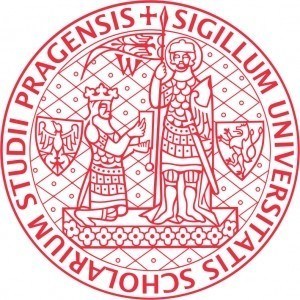Photos of university / #oxford_uni
Mathematicians have always been fascinated by numbers. One of the most famous problems is Fermat’s Last Theorem: ie if n≥3, the equation xn+yn=zn has no solutions with x, y, z all nonzero integers. An older problem is to show that one cannot construct a line of length 3√2 with ruler and compass, starting with just a unit length.
Often the solution to a problem will require you to think outside its original framing. This is true here, and you will see the second problem solved in your course; the first is far too deep and was famously solved by Andrew Wiles.
In applied mathematics we use mathematics to explain phenomena that occur in the real world. You can learn how a leopard gets its spots, explore quantum theory and relativity, or study the mathematics of stock markets.
We will encourage you to ask questions and find solutions for yourself. You will need to think mathematically and we begin by teaching you careful definitions so that you can construct theorems and proofs. Above all, mathematics is a logical subject, so you will need to argue clearly and concisely as you solve problems. For some of you, this way of thinking or solving problems will be your goal. Others will want to see what further can be discovered. Either way, it is a subject we want you to enjoy.
Maths Careers
Quantitative skills are highly valued, and this degree prepares students for employment in a wide variety of occupations in the public and private sectors. Around 30% of our graduates go on to further study, but for those who go into work typical careers include finance, consultancy and IT.
Nathan, an engineer, says: ‘During my degree I developed my ability to solve complex problems – a fundamental skill set to tackle challenges I encounter on a day-to-day basis as an engineer. The application of mathematics in engineering and manufacturing is ever increasing, meaning there will be more and more opportunities to find interesting roles in which I can apply my skills.’
- Years 1 and 2: around ten lectures a week, two–three tutorials or classes a week
- Additional practicals in computing (first year) and numerical analysis (if taken)
- Years 3 and 4: eight lectures a week, with two–four classes a week, depending on options taken
| 1st year | |
|
Courses Compulsory 1st year includes:
|
Assessment First University examinations: Five compulsory papers Computational mathematics projects |
| 2nd year | |
|
Courses
|
Assessment Final University examinations, Part A: Three core papers and six or seven optional papers |
| 3rd and 4th years | |
|
Courses Large variety, ranging across: Algebra; Analysis; Applied analysis; Geometry; Topology; Logic; Number theory; Applied probability; Statistics; Theoretical mechanics; Mathematical physics; Mathematical biology; Information theory; Actuarial mathematics; Undergraduate Ambassadors Scheme; Dissertation; Mathematical philosophy; Computer Science options; History of Mathematics The options listed above are illustrative and may change. A full list of current options is available on the Maths website. |
Assessment 3rd year: Final University Examinations, Part B: Eight papers or equivalent 4th year: Final University Examinations, Part C: Eight papers or equivalent Classification on Parts A and B. Currently upper second required to progress to Part C. Separate classification on Part C |
MMathPhys 4th year
From 2015–16, the Physics and Mathematics Departments have jointly offered an integrated master’s level course in Mathematical and Theoretical Physics. Mathematics students will be able to apply for transfer to a fourth year studying entirely mathematical and theoretical physics, completing the degree with an MMathPhys. The course offers research-level training in: Particle physics, Condensed matter physics, Astrophysics, Plasma physics and Continuous media.
- Attestat o Srednam Obrazovanii (Certificate of Secondary Education) would not be sufficient for candidates to make a competitive application. If your qualification is listed as being insufficient to make a competitive application to Oxford, then you will need to undertake further study if you wish to apply.You could take British A-levels (the British Council may know where you can take A-levels in your country), the International Baccalaureate (IB), or any other qualifications listed as acceptable on this page. The first year of a bachelor's degree from another university could also be an acceptable alternative.
- IELTS: overall score of 7.0 (with at least 7.0 in each of the four components)
- TOEFL (paper-based): overall score of 600 with a Test of Written English score of 5.5
- TOEFL (internet-based): overall score of 110 with component scores of at least: Listening 22, Reading 24, Speaking 25, and Writing 24.
- Cambridge English: Advanced, also known as the Certificate of Advanced English (CAE): grade A if taken before January 2015, or a score of at least 185.
- Cambridge English: Proficiency, also known as the Certificate of Proficiency in English (CPE): grade B if taken before January 2015, or a score of at least 185.
- English Language GCSE, or O-level: grade B (for IGCSE, please see below)
- International Baccalaureate Standard Level (SL): score of 5 in English (as Language A or B)
- European Baccalaureate: score of 70% in English.
Want to improve your English level for admission?
Prepare for the program requirements with English Online by the British Council.
- ✔️ Flexible study schedule
- ✔️ Experienced teachers
- ✔️ Certificate upon completion
📘 Recommended for students with an IELTS level of 6.0 or below.
Hill Foundation Scholarship
Russian nationals wishing to study for a second undergraduate degree.
Palgrave Brown Scholarship
Students must be ordinarily resident in and/or educated in the following countries:
Albania; Armenia; Azerbaijan; Belarus; Bosnia and Herzegovina; Bulgaria; Croatia; Czech Republic; Estonia; Georgia; Hungary; Kazakhstan; Kyrgyz Rep.; Latvia; Lithuania; Macedonia; Moldova; Montenegro; Poland; Romania; Russia; Serbia; Slovakia; Slovenia; Tajikistan; Turkmenistan; Ukraine; Uzbekistan.











